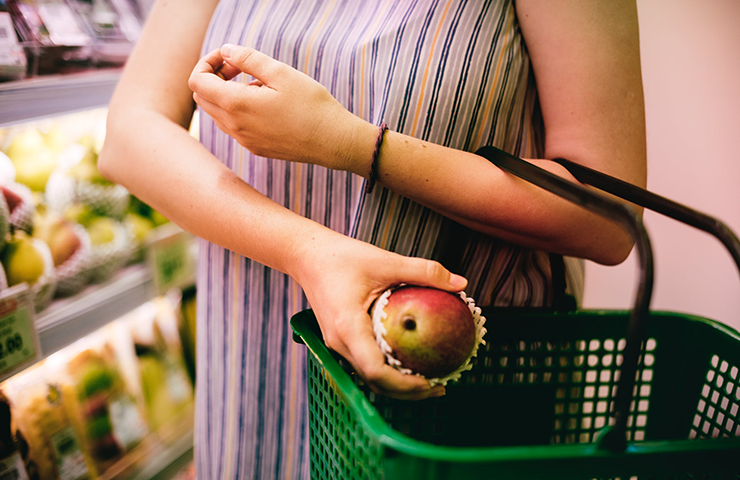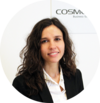From scrap to stock – the 2019 Austrian Waste Management Conference – Day 2

Austria’s recycling goals and associated measures
The first round of presentations on the second day of this year’s Waste Management Conference was once again all about plastics. The new recycling targets for plastic packaging waste requires a recycling rate of 50% by 2025 and 55% by 2030. It’s an ambitious goal for Austria, compared to the nation’s current rate of 34%. Dr. Emil Van Eygen, in his presentation, proposed four measures to potentially help Austria reach these targets:
Our ERP industry solution cc I environmental services was developed together with customers from this industry and consequently, maps customary processes.
- increase sorting efficiency
- increase the rate of collection in households
- increase the rate of collection in the commercial sector
- establish a residual waste splitting facility to handle Vienna’s residual waste
According to the analysis done by Dr. Emil Van Eygen, these four measures could raise the rate of recycling in Austria to 47%. Through an increased use of currently available technologies, it might thus be possible to reach the 2025 recycling target. It’s important to note that this analysis is based on an input-side calculation point. When we factor in an output-based quota, we arrive at a much higher target – one that does not appear to be achievable at this time without the use of new technologies such as chemical recycling. Furthermore, if we examine the ecological and economic effects of these four measures, we find that a reduction of about 67,000 tons CO2-eq.[1] would require very high expenditures on separate collection, sorting and residual waste splitting. So from a climate protection perspective, it's relatively cost-ineffective, and the question still remains open as to whether plastic recycling should be pursued at all costs.
Still searching for innovative packaging solutions
The idea that we need to rethink our approach to plastics was echoed by the ALPLA company – one of the leading manufacturers of innovative plastic packaging solutions (and COSMO CONSULT customer in the Data & Analytics area). For ALPLA, using plastics responsibly means considering the entire life cycle in the design of the packaging solution. The solution should be designed with optimal recyclability in mind.
”We see the current situation as an opportunity rather than a threat. The truth is, it’s a powerful engine of innovation”, explains Christian Hude-Burian, Head of Supply Chain & Sales at PET Recycling Team GmbH. PET Recycling Team GmbH is an ALPLA recycling plant. They have one location in Austria and one in Poland and are also involved in a joint venture in Mexico. The goal of the joint venture is to recycle “yellow bag” plastics. ALPLA is working with Swedish paper packaging specialist Billerudkorsnäs in pursuit of a new vision – to develop a completely bio-based and recyclable paper bottle.
Turning old into new - plastic recycling
Univ.-Prof. DI Dr. mont. Roland Pomberger of the Montanuniversität Leoben presented a new approach to the recycling of raw materials. Instead of being turned back into the same kind of material, plastic is broken down into its molecular constituents through a chemical process. Afterwards, these basic components are synthesized into new products. This ReOils process results in the production of oil which can then be processed by existing refineries. The process is currently being tested out in a pilot plant at the OMV Refinery in Schwechat, Austria. “What we end up with is a product that is so clean and so valuable that it’s comparable to the best crude oil,” explains Michael Fadler, Head of Operations for the pilot plant.
Current developments indicate that there’s a lot of change underway in the plastic packaging sector. It’s going to be exciting to see what new avenues will open up in the effort to reach the EU recycling target.
Is plastic packaging wrongly exposed to strong criticism? Is the negative impact greater than their benefit? Read more about that topic here:
Smart concepts for a dynamic world
The fact is that the world is changing at an ever-quickening pace. Megatrends such as urbanization, climate change, resource scarcity and technologization are affecting not just cities but the waste management industry as well. “Smart cities,” for example, rely on a “smart economy”, “smart mobility,” “smart homes” or similarly “smart waste”.
Dr. Andreas Opelt of Saubermacher Dienstleistungs-AG gave a presentation in which he described two different areas of municipal waste management in which his company had already developed and implemented innovative new concepts in Austria. To reduce the amount of recyclables in the regular trash, the company is currently working on a “raw materials scanner” that would detect incorrectly sorted materials in waste streams. The “WasteScan” project involves scanning residual waste utilizing a multisensor, multispectral system. Anonymized data can then be collected right as the trash is loaded into the waste collection vehicle. Multiple sensors scan the contents of a residual waste bin to determine the quality, and the data is logged right in the vehicle. Afterwards, the information is categorized, and the composition of the residual waste is analyzed. This insight into the precise composition of the residual waste and the sorting habits of the residents will help in the development of suitable measures to reduce improper disposal in the future.
Smart waste collection also includes intelligent, sensor-assisted containers that automatically report their fill level. This will allow for dynamic route planning instead of the conventional static method. This is an area with major potential, since intelligent container systems could lead to more citizens’ service, higher efficiency and fewer empty runs in the future.
Ideal partner for a digital circular economy
Like any other sector, waste management is continuously evolving. Reaching the ambitious targets set by the EU is going to require innovative new business concepts. Our industry experts are always up to speed, always informed on all the latest trends, opportunities and obstacles. Our many years of experience with international waste management projects, combined with our industry solution cc|environmental services is what makes COSMO CONSULT the perfect partner to guide you on your way to a digital circular economy.
That sums up the second day of the Austrian Waste Management Conference 2019. If you’d like to read about the first day, too – click here.
[1] The “Global Warming Potential” was developed to allow comparisons of the effects of different greenhouse gases. This index shows the global warming effect of a given greenhouse gas as compared to CO2 and is expressed in CO2 equivalents (abbreviated as CO2- eq.) (IPCC 2007/2013).

